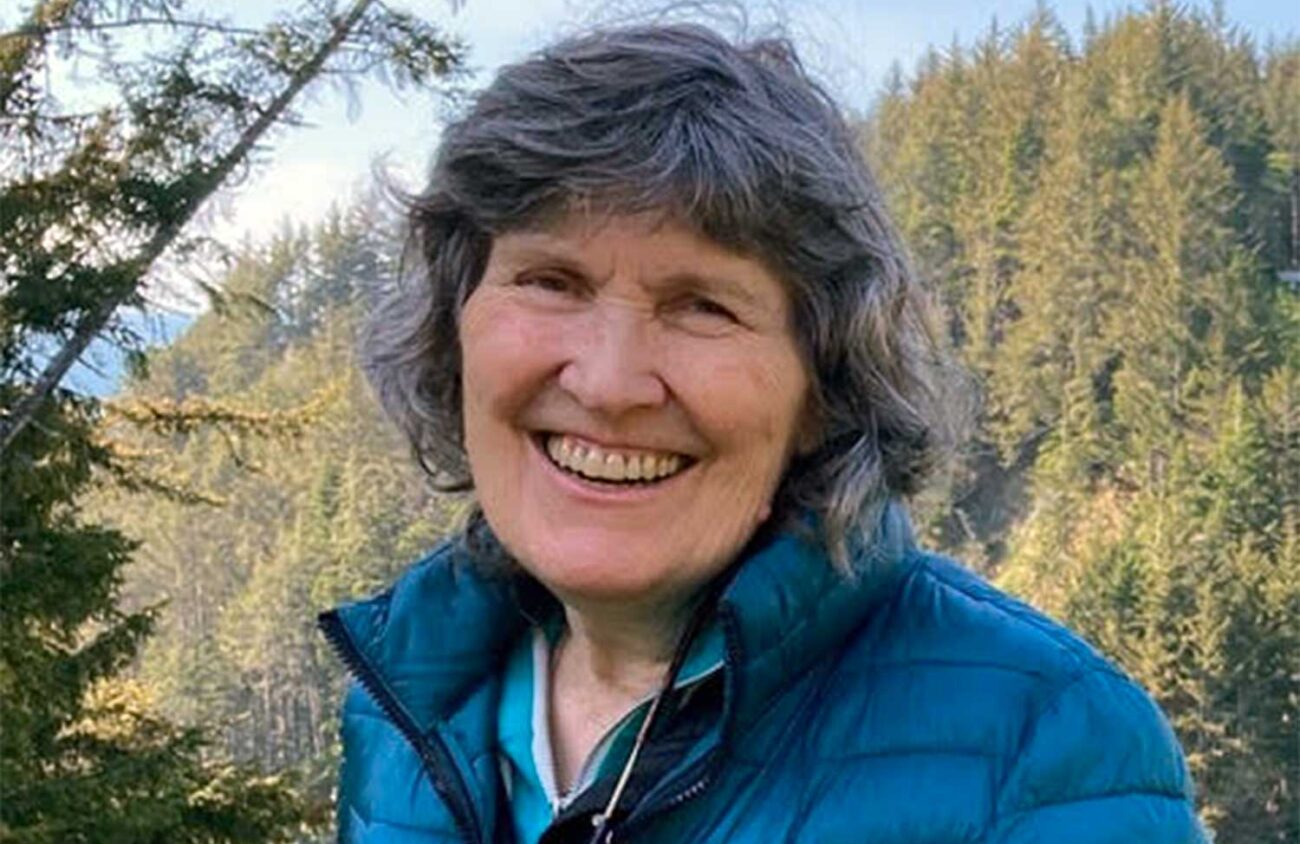“In campaigns, there’s a lot of pressure to be perfect all the time,” former Eugene mayor Kitty Piercy says. But in her 2004 campaign, Piercy says that Jana Rygas helped her “to joke and make fun of things.” She says that laughing at yourself “in a campaign and in life makes it easier.”
Rygas was an active political organizer and strategist who contributed to civics in Eugene for decades. She worked on the successful campaigns of three Eugene mayors, Piercy, Kaarin Knudson and Lucy Vinis, as well as other politicians, while also fighting for labor rights and helping build worker’s unions. She died March 27 at 70-years-old.
Rygas was born in Indiana on June 2, 1954. After graduating high school as valedictorian and getting her doctorate of veterinary science, she moved to Eugene in 1983. At the time, “she was a veterinarian who didn’t like being a veterinarian,” her friend David Funk says. “So she shifted to learning about politics. And so many of us relied on her for advice.”
Funk met Rygas in 2004, when she approached Piercy asking to be her campaign manager in her race for mayor. Piercy “was considered the underdog.” Funk says, “So we were all under pressure at that point, and there were a lot of political maneuverings going on on the other side.” He continues, “The other side had more money than we did.”
Piercy says that Rygas was a very rational thinker and “analyzed the campaign and took it apart and put it back together.” She says Rygas had her “knocking on every door,” speaking with women’s rights and environmentalist groups and finding her audience. It eventually led to her success against current legislator, then city councilor, Nancy Nathanson.
“Everybody who worked with her learned to like her and admire her for her skills, and she became a very desirable person to engage in political campaigns after that,” Funk says of Rygas.
Former Mayor Vinis and Rep. Val Hoyle both say they never would have thought to be politicians until Rygas pushed them to run.
“I always thought I would be the worker to help people get elected,” Hoyle says. She says she had never considered running because she came from a working class background. Hoyle says that it was Rygas who taught her, “because you come from a different place, that you’re bringing a different voice.”
“She was observant about people,” Vinis says. “She paid attention to them. She was thoughtful about the gifts they had, the talents they had, what they would bring to bear. And she had this way of weaving people together to make things happen.” She says that this translated smoothly to politics by “recognizing where people had a skill set, or where people would fit well in a particular role.”
For their entire friendship, Vinis says that Rygas mentored her, and had the last eyes on every speech she ever made. “I would not have a political life if it wasn’t for Jana,” Vinis says.
Rygas served on many committees, campaigns and workers unions throughout her life, such as the American Federation of Teachers, the Oregon Nurses Association, the American Association of University Professors and the Graduate Teaching Fellows Federation. She also assisted with many projects such as passing an $83 million bond with Lane Community College and working to remove cattle from sensitive Oregon desert lands.
According to her younger brother, Joe Rygas, their parents were both members of the Communist Party from the 1930s until the 1950s, when their father, Stanley Rygas, was investigated by the FBI because of his beliefs. Stanley was also a member of the United Steelworkers union for 38 years.
“We were surrounded with liberal politics and being on the side of the working man,” Joe says, “and I think she embraced those beliefs throughout her life.”
Funk, who worked consistently with Jana Rygas for close to 20 years, says, “She was always passionate about the underdog.” He says that Rygas often gave advice to politicians that “It’s a temptation to look at the big dollars that come in and forget that the people who can’t afford to give you political donations are the ones that really need you a lot.”
Piercy says that Rygas would never work for an effort that did not prioritize women’s rights, workers rights or didn’t fit with her “strong sense of justice.”
Though many of her campaigns were successful, they never came without stress and difficulty. Those who worked with her say that though she was very analytical, “She would always come in with a joke or something to break the mood,” Funk says. “She knew it was serious what we were doing, but not life threatening.”
As a result, Game Nights were born. Almost every month for 10 years, she invited politicians and other civic leaders to her house for an evening of potlucks, board games and talking about politics. “She just liked to have fun, and she instituted us having Halloween game nights where we were dressed up,” Funk says. This translated to her political projects as well. Funk recalls an instance where Rygas dressed up as a cow and danced onstage to “dramatize” the negative effects bovines have on waterways.
“She was a friend, advisor, confidant, strategist and a person I could call and cry to and laugh with,” Hoyle says. “I really miss being able to have her at the other end of the phone.”
Rygas is preceded in death by her parents, Stanley and Lucille, her two sisters, Lida and Nasha, and her beloved dog Magilla. She is survived by her brother Joe and her son Teal Greyhavens.
Those who would like to make a donation in her name can honor her lifelong support of unions and labor causes.
